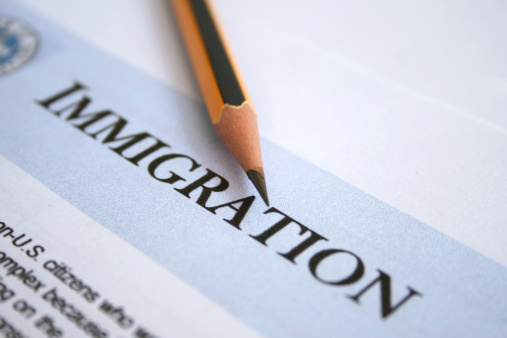
On July 24, 2025, the Ninth Circuit Court of Appeals reaffirmed that President Trump’s Executive Order 14160 aimed at ending birthright citizenship, violates the Citizenship Clause of the Fourteenth Amendment and is unconstitutional, upholding nationwide injunctions previously issued by lower courts. The ruling follows a June 27, 2025 Supreme Court decision in Trump v. CASA, Inc., which limited the authority of federal trial courts to issue universal nationwide injunctions, though it did not address the merits of the executive order itself. The Ninth Circuit held that full relief for states required a nationwide block to prevent confusion and harm to public policy administration.
A Brief Legal History
Birthright citizenship in the U.S. originates from the Fourteenth Amendment and was established by a landmark 1898 Supreme Court case, which affirmed that nearly all persons born on U.S. soil are citizens regardless of parental status. In January 2025, President Trump issued Executive Order 14160 to restrict automatic citizenship only to children with at least one parent who is a U.S. citizen or lawful permanent resident. Multiple district courts promptly issued nationwide preliminary injunctions, finding the order unconstitutional on Fourteenth Amendment grounds.
In Trump v. CASA, the Supreme Court ruled that district judges may not issue universal injunctions barring the executive order nationwide unless plaintiffs were actual parties in the suit. The underlying constitutional question on birthright citizenship remained unresolved, though the Court expressly provided that class actions remain a means to seek nationwide relief.
What’s Next
Following the Supreme Court’s procedural ruling, plaintiffs filed a nationwide class-action lawsuit in New Hampshire (Barbara et al. v. Trump) and secured a preliminary injunction on July 10, 2025 that again blocked implementation of the executive order for all children affected, regardless of location. The government is expected to appeal this ruling, likely leading to further appellate review and a possible return to the Supreme Court for a final decision on the constitutionality of the executive order itself.
Meanwhile, a legislative alternative, the Birthright Citizenship Act of 2025, would codify similar restrictions into law. It currently sits in committee and faces opposition, however, making its enactment uncertain.
Implications for U.S. Employers and Employees
At this time, the status quo remains: children born in the U.S. are recognized as citizens, with birth certificates, Social Security numbers, immigration status, and access to federal and state benefits that are expected to proceed normally. Employers should not create or alter their policies based on Executive Order 14160, as it remains blocked nationwide.
Nevertheless, uncertainty remains, particularly if the U.S. government succeeds in overturning class action injunctions or if litigation becomes fragmented by state. In a challenging scenario, citizenship recognition could vary regionally, potentially leading to compliance challenges for HR departments, benefits administration, or I?9 verification processes. Employers should stay attuned to legal developments and be prepared for fluid interpretations depending on federal and appellate rulings.
How Employers and Employees Can Prepare
Legal and compliance teams should work with immigration and employment counsel to:
- Monitor litigation and appellate developments, especially appeals of class action injunctions and any Supreme Court intervention.
- Adopt conservative policies, including continued standard verification and benefits processes until any ruling requires changes to these procedures.
- Prepare internal guidance for HR teams so employees receive consistent messaging if protocols shift.
- Consider the potential need to document parental status or birth records differently—only if and when legally required.
Employees, particularly temporary workers who may have U.S.-born children, should:
- Obtain regular documentation (birth certificates, Social Security cards, passports) for children born in the U.S.
- Stay alert to legal developments via trusted immigration counsel.
- Consider joining or monitoring class action proceedings if residing in states outside of those already covered by litigation.
- Explore requirements to obtain alternative or dual citizenship for U.S.-born children in the worker’s country/countries of nationality to ensure the children are not stateless should the executive order be ultimately upheld.
Final Thoughts
Birthright citizenship remains legally intact as of July 24, 2025 to the credit of multiple nationwide injunctions upheld by the Ninth Circuit and reinforced by a class action filing that maintains constitutional protections. These legal protections ensure that every child born in the U.S., regardless of their parents’ immigration status, continues to be recognized as a citizen at birth under the Fourteenth Amendment. The Supreme Court has clarified procedural restrictions on universal injunctions but the substantive question of whether a President may reinterpret the Fourteenth Amendment by executive order continues to be an open question. Employers and employees should continue standard practices, remain vigilant, and partner with counsel to be ready to adapt if further appellate rulings or legislative changes finally resolve the birthright citizenship issue.
#Birthright #Citizenship #Crossroads